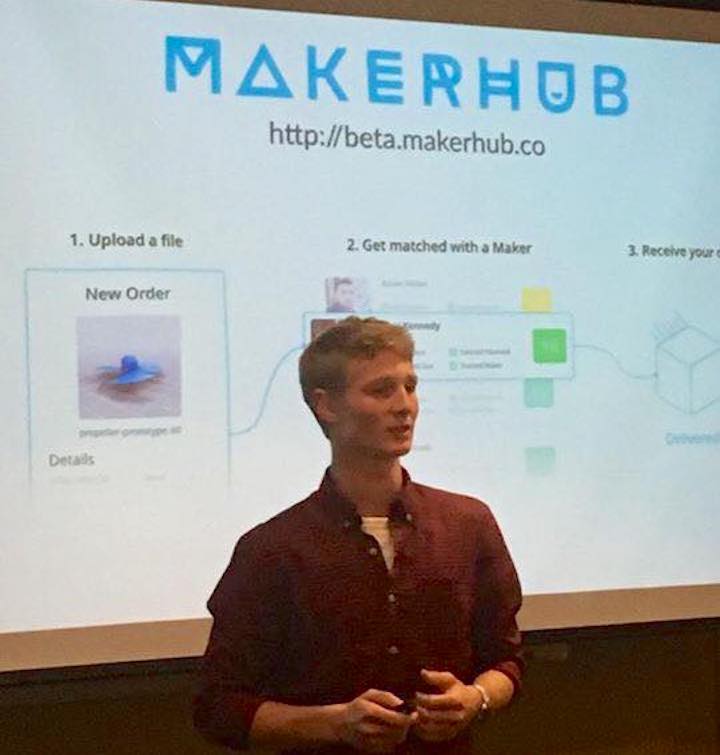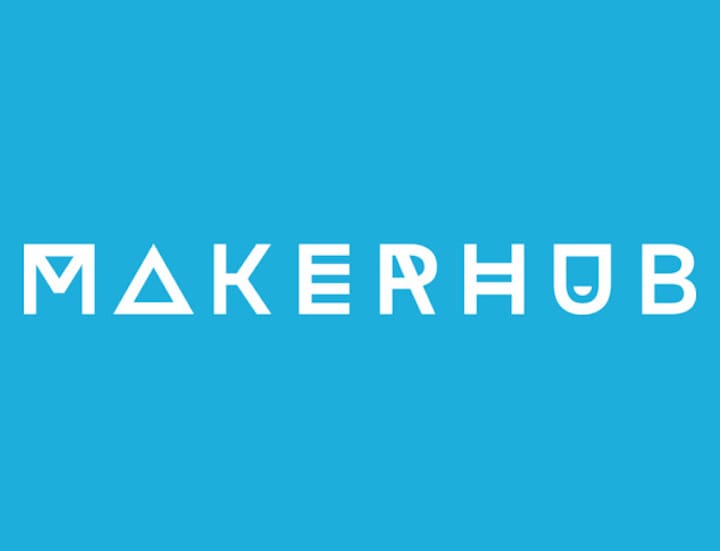
Competition is a wonderful thing, and one of its most recent developments is a new community 3D printing network, MakerHub.
MakerHub is a service that connects 3D printer operators with those wishing to purchase print services. Unlike a conventional 3D print service that operates a fleet of busy 3D printers, MakerHub, like other community networks, leverages the operational capabilities of its members to provide the print services.
It’s ideal for those with relatively idle 3D printers, both large and small, and buyers who don’t want to or can’t bother with the fuss of obtaining and operating a 3D printer competently.
This is not a new concept; it’s been widely used, most notably by 3D Hubs and MakeXYZ, although there are other smaller printing – and making – networks. They’re like an “AirBNB” for 3D printing.

We spoke with Cedric Kennedy of MakerHub to find out more about this new service.
Fabbaloo: What caused you to create this service, as there are already some similar existing services, like MakeXYZ and 3D Hubs?
Cedric Kennedy: We decided to create this service because we found that many makers were unhappy with current services such as the waiting periods on 3D Hubs and the lack of support provided by them and other current services. Our goal is to incentivize and empower our makers to become successful doing
what they love: 3D printing.
Fabbaloo: How does the service work? Matching requests and operators? What does each party experience?
Cedric Kennedy: Our first release will be quite simple. As a maker signs up for an account they input information about what type of 3D printer(s) they own, what type of material they have access to. If any given order can be fulfilled by the inputs a maker has set, they are added to a list of possible makers for the buyer to review. At this point, the buyer selects a maker and the maker is prompted about their new job. Once the order is complete, the buyer is notified and once the transaction has been closed (order has been received by buyer) both sides are reviewed in terms of quality and speed of service. This allows us to assure quality in addition to both party’s happiness. If for any reason something goes wrong, our team has a handful of printers that can be used to back up any order. Lastly, going forward our team has a handful of features that will be implemented and our ultimate goal is to continue making our process as easy and streamlined as possible.
Fabbaloo: What were the big challenges in setting up this network?
Cedric Kennedy: Our biggest challenge seems to be the balancing act between both makers and buyers. Both sides are relying on our service. In other words, if we don’t process enough orders for our makers, then our makers will become upset, and if we don’t have enough makers readily available for our buyers, they are likely to not return to our site.
Fabbaloo: What’s your goal by launching the system? Are you intending on making big cash? Or is this a community non-profit venture?
Cedric Kennedy: Looking forward, our goal is to create a one stop shop for all things 3D printing. You need something printed? We got you. You need filament? We got you. You need a 3D-printer? We got you.
Additionally, our team is currently designing a 3D printer that will be paired and automated through our Makerhub app. Our goal with this printer is that a printer can be controlled from your phone but also be automated once an order is received. So, to answer your question, we are looking to create a sustainable business but simultaneously we would like to support the 3D
printing community also.
Fabbaloo: Is the system open for business now? If not, when do you expect to launch?
Cedric Kennedy: Our system will be open for business on November 1, 2017.
Fabbaloo: What kinds of participants do you expect to service, both for print requestors and print operators?
Cedric Kennedy: We will be servicing both the requestors and operators. We have our beta being tested by a private group of individuals who are helping us work out bugs.
Fabbaloo: What is the cost of using the system? Who sets prices?How does the system support itself financially?
Cedric Kennedy: We make 12.5% off each order processed through our site, however that percentage is reduced as makers fulfill more orders. Other incentives can also be earned including credit towards 3D printing supplies and Makerhub apparel.
We seem to have another option for idle 3D printer operators. It should be interesting to see how this venture moves forward, as 3D Hubs seems to be moving more directly towards higher-end commercial 3D printing options, and less towards their original market. Could MakerHub pick up this business? We’ll soon see.
Via MakerHub

